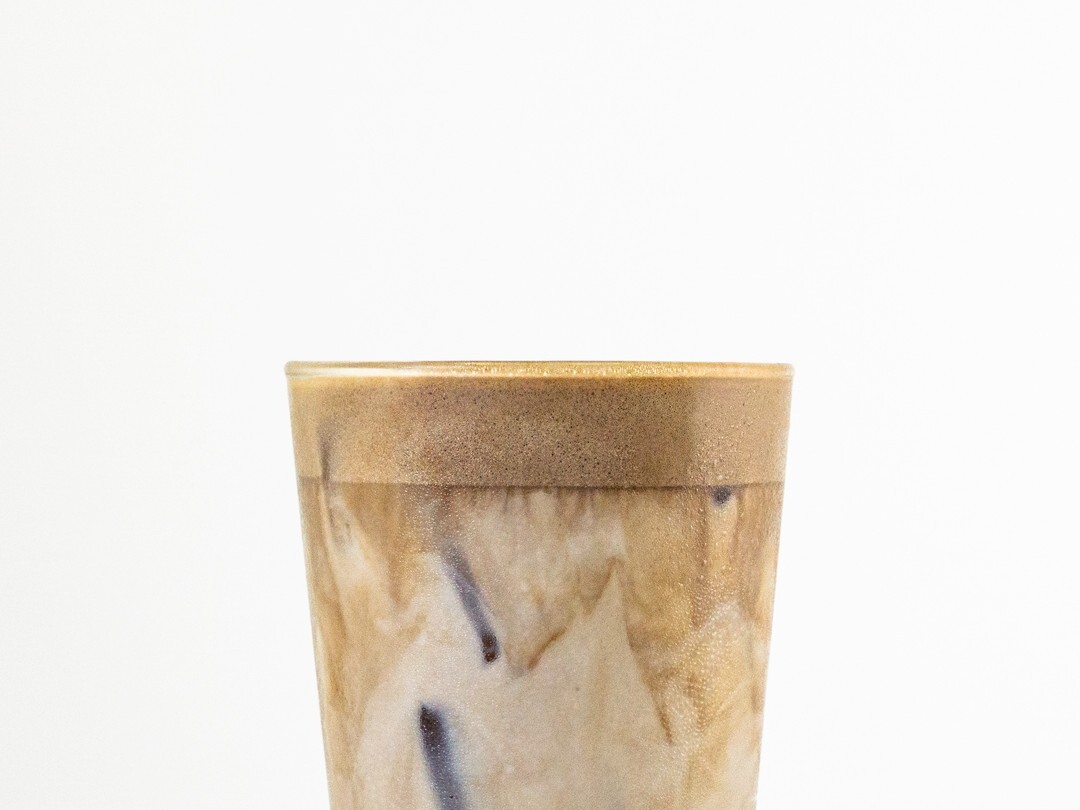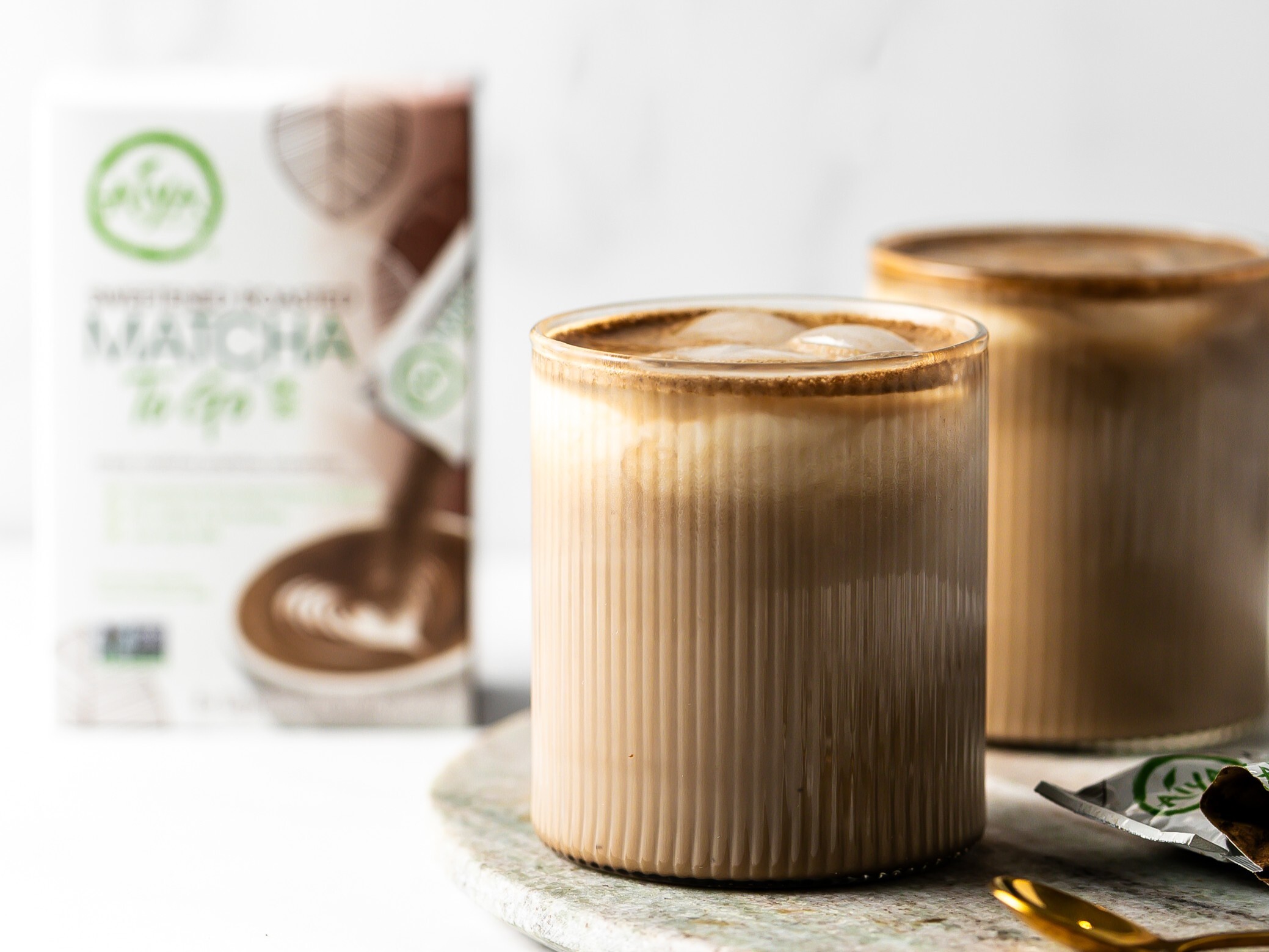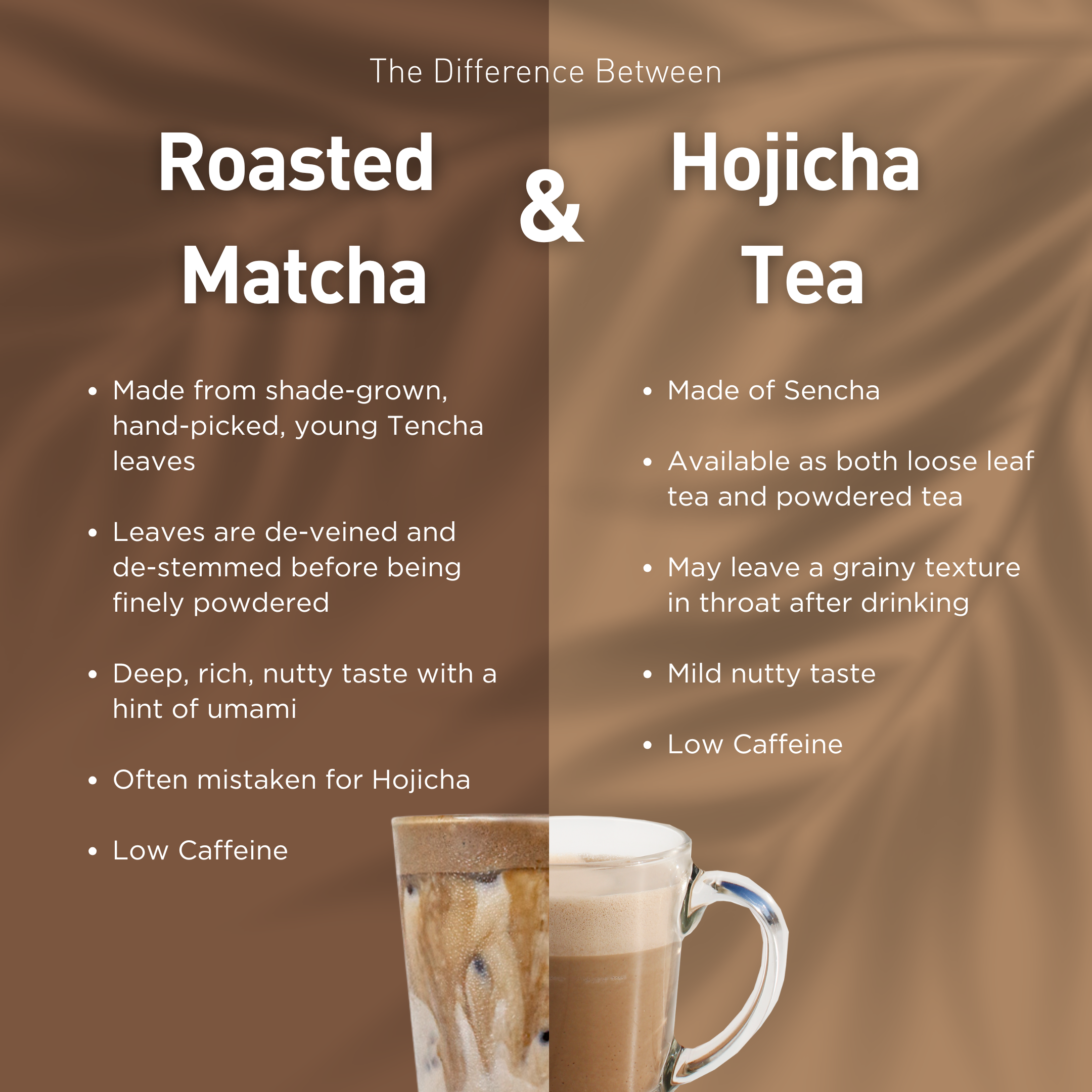Roasted Matcha vs. Hojicha
Posted by Aiya Matcha on Apr 2nd 2025
When it comes to Japanese teas, two varieties often stand out for their unique flavors and preparation methods: Hojicha and Roasted Matcha. Both are green teas, but their differences in flavor, caffeine content, and health benefits make them distinctive. In this post, we’ll explore the key differences between these two delicious teas, with a particular focus on why Roasted Matcha may be the superior choice for your tea-drinking experience.

What Is Hojicha?
Hojicha is most commonly made from Sencha, a type of green tea, which is dried and then roasted. This roasting process gives Hojicha its signature light brown color, earthy aroma, and mild flavor. The key to Hojicha’s taste lies in the roasting process, which creates a smooth, comforting tea that’s low in bitterness and high in earthy flavors.
Hojicha can be found in both loose leaf and powder forms and one of it’s most notable characteristics is its composition. Hojicha, is often described to have a grainy, gritty texture which can leave a lingering feeling in your throat, making it less enjoyable for some drinkers.
What Is Roasted Matcha?
Roasted Matcha, on the other hand, offers a different experience altogether. Roasted Matcha is crafted from Tencha leaves that have been dark roasted to give it a richer, more nutty flavor profile. These leaves are then steamed, dried, de-veined, de-stemmed, roasted, and ground into a fine powder resulting in smoothest Roasted Matcha.
Roasted Matcha brings a warm, earthy, and subtly sweet taste that pairs well with both sweet and savory dishes. The caffeine content in Roasted Matcha is comparable to that of Hojicha since both undergo a roasting process. Aiya’s Sweetened Roasted Matcha To Go is blended with cane sugar, creating a rich blend that’s perfect for café-style drinks like lattes and smoothies.

Sencha vs. Tencha
Sencha and Tencha are both Japanese green teas but differ in their cultivation, processing, and use. Sencha is grown in full sunlight, producing bright green leaves with a fresh, grassy flavor. The leaves are steamed and dried after harvesting. In contrast, Tencha is shade-grown, which enhances its chlorophyll content, giving it a darker green color and a richer, umami flavor. After harvesting, Tencha leaves are de-veined and de-stemmed then steamed and dried. Tencha leaves are primarily used to make Matcha by grinding into a fine powder.
Key Differences Between Hojicha & Roasted Matcha
-
Flavor Profile
Hojicha’s roasted flavor is mellow and earthy, often with hints of sweetness, but it lacks the depth and complexity of Matcha. Roasted Matcha, on the other hand, has a rich, nutty flavor that’s enhanced by the dark roasting process, offering a unique twist on traditional Matcha’s umami taste.
-
Caffeine Content
Hojicha and Roasted Matcha both have lower caffeine levels compared to traditional Matcha.
-
Texture and Consistency
Hojicha can leave a grainy or gritty sensation in the throat. In contrast, Roasted Matcha’s finely ground powder dissolves more smoothly, making for a silky and pleasant mouthfeel.
-
Versatility
While Hojicha is commonly consumed as a warm tea, Roasted Matcha is more versatile. Its sweetened, nutty flavor is perfect for lattes, smoothies, and baked goods. Roasted Matcha offers a more modern twist on the traditional Matcha experience, making it ideal for creating innovative drinks that cater to today’s café culture.
-
Color
Roasted Matcha undergoes dark roasting rather than the typical roasting process, giving it a richer, deeper color compared to regular Hojicha.

Why Choose Roasted Matcha Over Hojicha?
While both teas have their unique qualities, Roasted Matcha comes out ahead in several areas. Its richer flavor profile, smoother texture, and nutritional content make it a superior choice for those seeking a refined, versatile green tea experience. The fine powder of Roasted Matcha is not only easy to prepare but also offers a more enjoyable drinking experience, with none of the graininess or gritty sensation that can come with Hojicha.
Whether you're making a latte at home, blending it into a smoothie, or simply enjoying it in its purest form, Roasted Matcha stands out as the more dynamic and flavorful choice.
In conclusion, while Hojicha has its place for those looking for a lighter, less caffeinated option, Roasted Matcha offers a more balanced, smoother, and richer experience. If you're looking to elevate your green tea game, Roasted Matcha is the clear winner.
